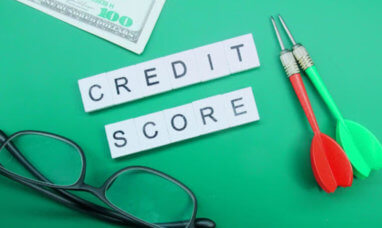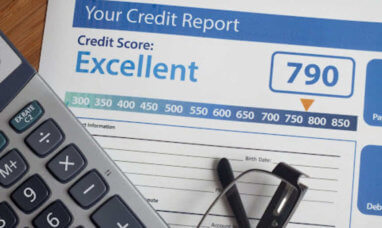What have you heard about how to build credit? Does it sound like a slow, uphill battle?
While building your credit does take time, there are several things you can do to speed the process. Here are some of the best ways to boost your score and continue building credit over time.
1. Review Your Credit History
First, you need to know what you’re dealing with. Request a copy of your credit report and review it carefully.
If you find errors, you can dispute them with the credit-reporting agency. Removing some types of errors, such as late payments, will give your score an immediate boost.
Normally, each of the three major credit-reporting agencies allows you to request your report for free once a year. If you get a copy from each agency, you can essentially check your score every four months for free.
Currently, through April 2022, you can get a free copy of your report once a week due to the pandemic.
The three major agencies are Equifax, Experian, and TransUnion. Keep in mind that while all of them collect financial information on you, it may come from different sources. The agencies don’t seek information out but rather organize what is reported to them.
For example, you may have credit cards that report to Equifax information that the other two agencies never receive. For this reason, it’s a good idea to vary who you request your report from to keep an eye on them all. You never know who your potential lender will request the report from.
2. Create Good Credit Habits
Reviewing your report also gives you a good idea of where you can improve your credit habits.
Do you have a pattern of late or missed payments? Make it a priority to make payments on time, every time. It will take seven years for all the missed payments to drop off your score, but lenders will look favorably upon a several-month streak of on-time payments.
Do you carry a high credit utilization rate on your credit cards? This means you are using a lot of your available credit. For example, if your credit limit is $1000 and your balance is $500, your credit utilization rate is 50%
Bring down some of those balances for a quick way to boost your score. Experts recommend staying under 30%.
If you still have nagging student debt, make it a priority to pay off those accounts. Paying off student loans can increase your credit score considerably. Keep in mind that you might find backdated forbearance on your credit report. Getting rid of this as soon as possible will also help.
Speaking of student loans, you might wonder, how does student loan consolidation affect my credit score? It doesn’t make much of a difference, but if you can secure a better rate, it may still be worth it.
3. Build Credit with a Secured Card
What if you’re starting from scratch because of extremely poor credit history, or no history? A great way to start building credit is with a secured card. Not only does this strategy help your credit score, but it also helps you get used to making on-time payments each month.
With a secured card, you’re essentially borrowing from yourself. For example, if the card comes with a $500 limit, you have to make a $500 deposit. It seems silly from a loan standpoint, but it is an excellent way to build credit and show lenders that you are responsible.
Many of these products will raise your limit after you’ve shown credit-worthy habits over a certain length of time. Or, you can now qualify for a normal card with the history you’ve built.
4. Build Credit with a Secured Loan or Credit-Building Product
If you’d rather not use a credit card, you can do the same thing with a loan. Many companies offer credit-building loans or secured loans that work much like secured cards.
If you already have money on deposit with a bank or credit union, talk to them about this type of loan product. Often, this will be your cheapest option for a credit-building product.
5. Become an Authorized User on Someone Else’s Card
Do you know someone with good credit who would be willing to add you as an authorized user on their card? This allows you to essentially borrow a bit of their credit information and let you build credit.
Parents will often do this for their kids to help them start building their credit. However, if someone offers you this opportunity, take it very seriously. Your poor actions can also affect their credit score or cause friction in a relationship that isn’t worth it.
6. Get a Co-Signer for Your Loan
This method doesn’t do much for your credit score, but it does allow you to get a better rate on a loan. That is the whole point of building your credit score anyway.
How does it work? Find someone with good credit who is willing to sign with you on your loan. Your co-signer is saying they will take responsibility for the loan if you don’t make your payments. Again, treat this favor with the seriousness it deserves. Don’t let your irresponsibility ruin your relationship with a friend or parent. Learn to build credit responsibly.
7. Add Bills to Your Credit Report
What if you don’t have much credit history, but you have been making regular payments? If you live in your own home, you have rent payments, utility bills, and other monthly bills. If you’ve been faithfully paying those on time, you can use them to boost your score.
However, they don’t show up on your report automatically — you have to make it happen.
There are services you can use, and Experian offers this with Experian Boost. Get credit on your report for all sorts of recurring bills like utility, cell phone, and streaming service bills.
Enjoy a Higher Credit Score
Even if your score has been badly damaged or you’re starting from zero, there are plenty of ways to repair or build credit . All it takes is a bit of time and dedication.
Featured Image: Twenty20








